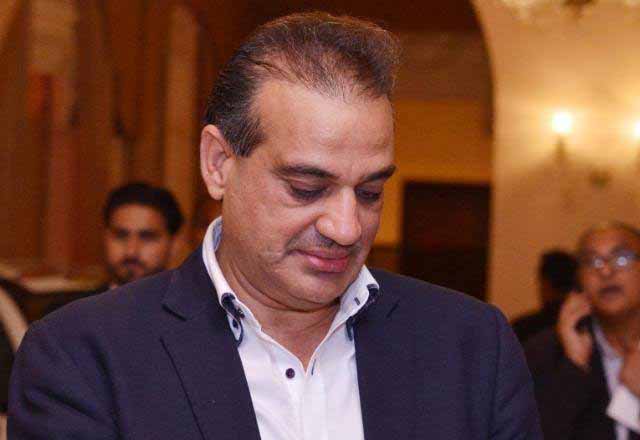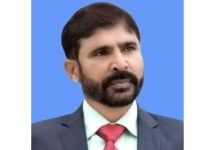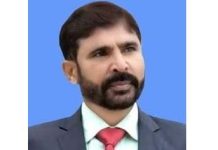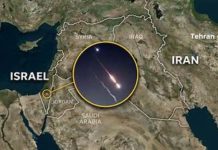The PML-N government is undoubtedly poised to encounter a multitude of challenges. Operating as a fragile minority government, its continual reliance on the PPP for survival adds an additional layer of complexity
Analysis
Ansar M Bhatti
Islamabad: In a significant development, the PML-N and the PPP formalized an alliance Tuesday night, marking a crucial step towards government formation and bringing an end to the prevailing uncertainty and chaos albeit for a while. However, the nature of this partnership remains uncertain, raising questions about whether it is grounded in substantial principles or merely a strategic alliance of convenience.
Earlier this week, on Monday, February 19, 2024, this newspaper reported on the success of government formation talks, outlining the path for collaboration between the two parties in the upcoming administration. According to the agreed-upon formula, the PPP is set to secure the Presidency, Governorships of Punjab and Khyber Pakhtunkhwa, Senate chairmanship, Balochistan chief ministership, and the deputy speaker position in the National Assembly.
Despite this agreement, a notable point of contention has emerged regarding the selection of the next Chairman of the Senate. While the influential forces advocate for the appointment of caretaker Prime Minister Anwaarul Haq Kakar to this role, the PPP is pushing for the elevation of Senator Salim Mandivala to the position. Former Prime Minister Yousaf Raza Gillani may also be another potential candidate.
In the race for the Governorship of Punjab, the names under consideration include former Information Minister Qamar Zaman Kaira, Makhdoom Ahmed Mahmood, and Afzal Chan. Among these contenders, Makhdoom Ahmed Mahmood and Qamar Zaman Kaira emerge as strong candidates for this prestigious position.
In this negotiated settlement, the PML-N will assume key roles and responsibilities, securing the Prime Minister’s office, the Chief Ministership of Punjab, and the Speaker position in the National Assembly. Additionally, the party will have the privilege of nominating governors for both Baluchistan and Sindh provinces plus all the tension and headache as it has to take full responsibility when it comes to governance and sorting out fiscal as well as political issues because the PPP shall not be part of the Cabinet and decision making, at least for the moment.
The PPP’s decision to refrain from joining the Cabinet raises concerns for the stability of the PML-N-led government. This move not only fuels existing speculations about the government’s ability to complete its full five-year term but also hints at the possibility of a calculated strategy. Perhaps, this intentional choice is aimed at facilitating a seamless transition of power possibly in a few years, allowing for a change of guards without unnecessary complications or disruptions.
The persistent challenges confronting the PTI founding chairman are anticipated to endure, yet the party has demonstrated a remarkable resurgence and vitality following its impressive performance in the 2024 general elections. With the possibility of coalition governments formed by the PML and PPP, it becomes crucial to establish a robust opposition, functioning as a vigilant watchdog to prevent the coalition from navigating too smoothly in both national and provincial assemblies. This development holds promise for PTI members, providing them with a potential opportunity to constitute a formidable opposition. The PTI members can anticipate finding solace, as a significant number of them have emerged from their hibernation.
The upcoming assumption of government in the KP province and its role as the potential opposition in the National and Punjab assemblies are likely to bolster its position even more. Despite ongoing challenges, the PTI’s recent electoral success has injected a sense of resilience and optimism within the party, setting the stage for a potentially transformative period in its political trajectory.
It is widely acknowledged that, in addition to internal dynamics, external factors also wield significant influence in shaping and dismantling governments in Pakistan—an enduring reality. The impending change of administration in the United States later this year could exert a notable impact on the political landscape of Pakistan. The potential victory of Donald Trump in the U.S. elections has been viewed by Senator Mushahid Hussain as a potential boon, particularly for the Pakistan Tehreek-e-Insaf (PTI). Without mincing words, Senator Hussain has forecasted that a Trump triumph may swiftly alter the political trajectory in Pakistan in favour of beleaguered PTI.
As the political landscape continues to evolve, it remains to be seen how this newly formed alliance will navigate the complexities of governance and whether it will stand the test of time beyond its immediate purpose. It remains a fact that the
The Pakistan Tehreek-e-Insaf (PTI) has emerged as the most popular political party, demonstrating resilience in the face of numerous challenges. Despite encountering various obstacles, the party has successfully secured more seats than its counterparts, the Pakistan Muslim League-Nawaz (PML-N) and the Pakistan People’s Party (PPP). This electoral success solidified PTI’s position as a legitimate contender for forming the government.
The PML-N government is undoubtedly poised to encounter a multitude of challenges. Operating as a fragile minority government, its continual reliance on the PPP for survival adds an additional layer of complexity. Furthermore, the administration finds itself in a precarious position as it lacks the moral authority bestowed by the masses, who did not grant it a clear mandate to govern the country. In essence, the success of the PML-N government hinges on its ability to transform adversity into opportunity. Anything less than an extraordinary performance may jeopardize the future of the party.

















